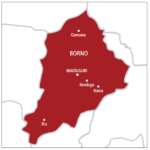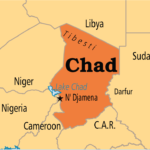The International Committee on Nigeria (ICON) in collaboration with the International Organization for Peace Building and Social Justice (PSJ) has published a report on genocide, religious persecution, among other crimes in Nigeria.
The report titled “Nigeria’s Silent Slaughter: Genocide in Nigeria and the Implications for the International Community” reveals how the Boko Haram terrorist group killed more 40, 000 Nigerians.
It also exposed the ongoing attack by militants, who according to the report, killed many Nigerians, primarily Christian farmers.
- Secession agitations: Kalu warns against repetition of 1967 genocide
- Biden makes history, declares century-old killing of Armenians ‘genocide‘
Based on the data collected between January 2000 and January 2021, deaths resulting from Militant attacks is recorded to be 19, 101 across the country. Similarly, 52, 861 is recorded to have been killed by the Boko Haram terrorists’ group, while 44, 303 were documented killed by other actors.
The report presents researched and documented data and analysis that highlights the critical need for intervention by the United States (coordinated by an empowered Presidential envoy) to address this situation in Nigeria and the Lake Chad region.
ICON states that it had empowered a team of international lawyers to make a prima facie case that religious persecution/genocide is occurring and call on the United States to intervene and coordinate an international response to address the growing human rights abuses and threat in Nigeria and the Lake Chad Region.
The NGO expects the Nigeria government to upgrade the quality of service chiefs to personnel who can demonstrably, emphatically and proactively tackle and address the present crisis of insecurity in order to make the country safe again.
It also, among others, expects the Nigeria government review the country’s constitution. This, according to the report, will correct inconsistencies, inequalities, and jurisprudential mischief that compromise the letter and spirit of the country’s civil association as political community.

 Join Daily Trust WhatsApp Community For Quick Access To News and Happenings Around You.
Join Daily Trust WhatsApp Community For Quick Access To News and Happenings Around You.


